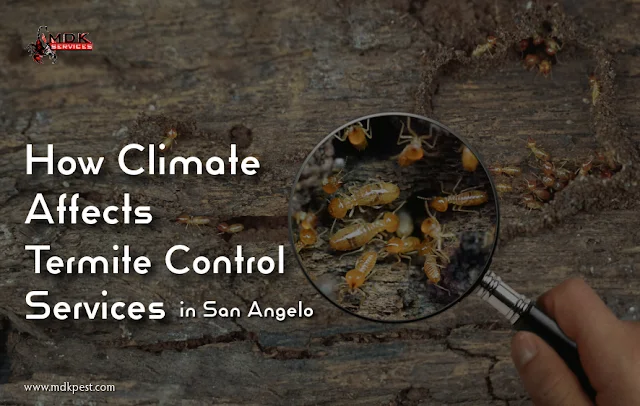Dealing with pests in your home or business can be one of the most frustrating experiences. From rodents and cockroaches to ants and termites, these uninvited guests can disrupt your daily life, cause health issues, and damage property. The good news is that professional Pest Control services are here to help. With proven strategies and advanced techniques, experts can take these nuisances from annoying to completely gone.
Understanding the True Impact of Pests
Pests come in all shapes and sizes, and each one brings its own set of problems. A trail of ants in the kitchen might seem harmless, but they can quickly invade your food storage and become difficult to manage. Termites, on the other hand, silently eat away at wooden structures, causing thousands of dollars in damage over time. Meanwhile, rodents and cockroaches not only spread disease but also contaminate food and surfaces, putting your family’s health at risk.
Ignoring a pest problem often leads to bigger consequences. Pests multiply rapidly, turning a small issue into a full-blown infestation. Whether it’s the buzzing of mosquitoes, spider webs in the corners, or the scratching of rodents in the walls, these signs indicate that action is needed. Professional intervention ensures the problem is handled efficiently before it escalates further.
How Expert Pest Control Works
The magic of professional pest control lies in its systematic approach. Here’s what you can expect when you hire experts:
- Thorough Inspection
A professional technician will conduct a detailed inspection of your property to identify the type of pest, the severity of the infestation, and the conditions contributing to the problem.
- Targeted Treatment Plan
Based on the findings, a customized treatment plan is designed to effectively eliminate the pests. This might include spraying, baiting, fumigation, or sealing entry points.
- Safe and Effective Elimination
Professional pest control companies use advanced products and techniques that are safe for your family and pets but lethal to pests. They focus on eliminating pests without compromising health and safety.
- Prevention Measures
In addition to removing pests, experts implement preventive measures to keep them from coming back. This may include sealing cracks, reducing moisture, and offering advice on proper sanitation.
- Ongoing Monitoring
Many professional services offer follow-up visits to ensure the treatment is effective and pests are completely gone. Regular monitoring helps catch any signs of future infestations early.
Benefits of Professional Pest Control
- Long-Term Solutions
Unlike DIY methods, professional treatments target the root cause of the infestation, ensuring that pests are removed for good.
- Protecting Your Health
Many pests carry harmful bacteria, viruses, and allergens that can impact your health. Experts ensure your home is safe by eliminating these risks.
- Preventing Property Damage
Termites, rodents, and other pests can cause extensive structural damage. Professional pest control services protect your property from costly repairs.
- Time and Cost Savings
While DIY methods often require repeated attempts, professional pest control saves you time, energy, and money by providing an efficient and lasting solution.
- Peace of Mind
Knowing your home or business is pest-free allows you to relax and enjoy your space without the worry of unwanted intruders.
Common Pests That Require Expert Help
While minor pest problems might seem manageable, certain infestations demand professional attention. Here are a few examples:
- Termites: Known as silent destroyers, termites can compromise the structural integrity of your home.
- Rodents: Mice and rats spread disease, chew through wires, and contaminate food.
- Cockroaches: These pests multiply quickly and can trigger allergies and asthma.
- Bed Bugs: Bed bug infestations are nearly impossible to eliminate without professional help.
- Ants: Ant colonies can grow rapidly, invading kitchens and pantries.
If you notice any of these pests, it’s essential to act quickly before the situation worsens.
Conclusion
Pests can turn your living or working environment into a source of constant stress, but you don’t have to tackle the problem alone. Professional Pest Control services offer safe, effective, and long-term solutions to rid your property of pests. From detailed inspections to targeted treatments and prevention measures, experts ensure your space is pest-free and protected.
Don’t let pests take over your life—trust the professionals to make them disappear. With expert care, you can finally say goodbye to pests and enjoy a clean, safe, and comfortable environment once again.
Say goodbye to unwanted pests with MDK Services, your trusted partner for professional Pest Control Services. Whether it’s rodents, termites, or insects, they provide safe and effective solutions to protect your home or business from infestations. Conveniently located at 1001 Cricket Ln, San Angelo, TX 76905, their team of experts uses advanced techniques to eliminate pests and ensure long-term prevention. Call them today at +1(325) 658-3498 to schedule your service and enjoy a clean, pest-free environment. Trust MDK Services for reliable, hassle-free pest control you can count on!























.jpg)


Follow Us
MDK Pest is knowns as a nearby exterminator company serving San Angelo, TX. SAN ANGELO’S ONLY FULL-SERVICE PEST CONTROL COMPANY